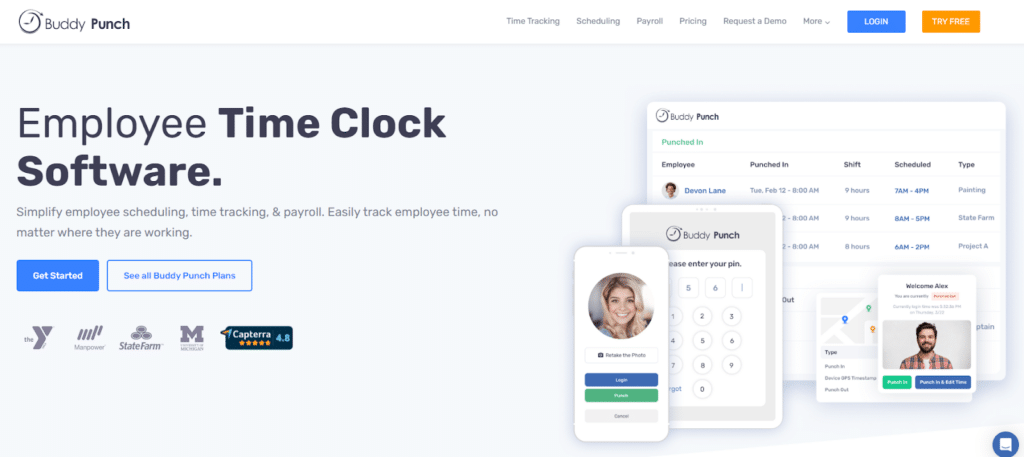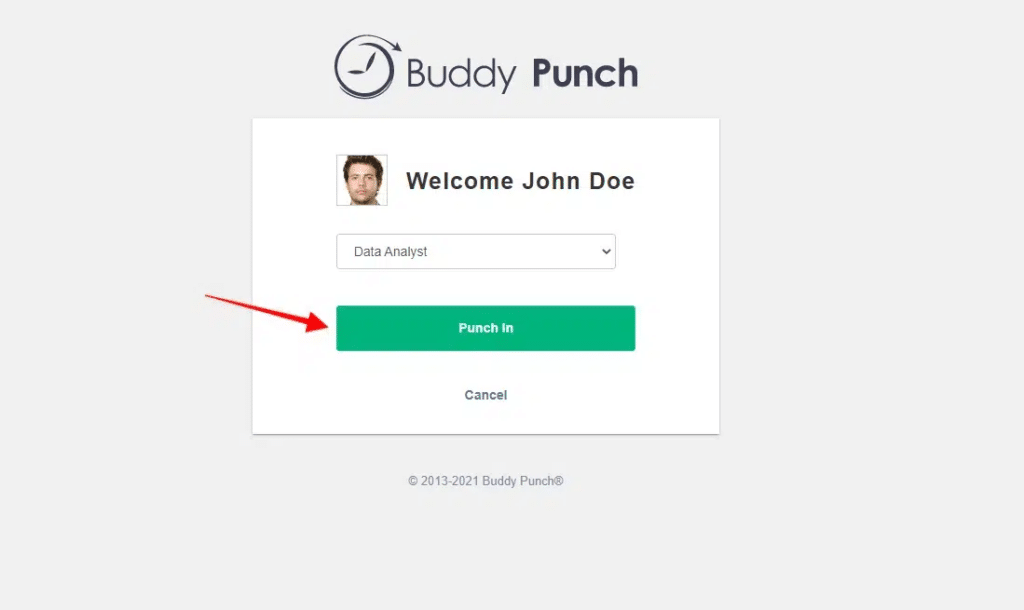How Tardiness Impacts Your Business’ Profit

The word of the day is tardiness. The definition of tardiness, according to thesaurus.com, is the state or quality of being later than the usual proper time.
Arriving just a few minutes late to work may seem minor, particularly if there is a valid reason.
However, if this becomes a regular occurrence and an employee habitually skips the first quarter of morning work, it can lead to severe consequences for a business.
The negative impact goes far beyond affecting only the productivity of the particular employee during that specific hour.
A recent HRDive study found that approximately 6% of American hourly workers arrive late to work.
Additionally, a CareerBuilder study showed that up to 25% of u.s. businesses’ employees struggle to be on time and are occasionally late. While tardiness is a common issue, it is not necessarily a catastrophic societal problem.
In the business world, small things can add up over time, both good and bad. Therefore, even the smallest incidents of tardiness can eventually become a significant problem for a company.
With this in mind, let’s look at what employee tardiness is and a few negative impacts of chronic tardiness on your business and its profitability, and how to reduce employee tardiness.
- Negative Impacts of Chronic Tardiness On the Business
- How To Reduce Employee Tardiness?
- When To Give A Tardy Employee A Written Warning?
| What Is Employee Tardiness? 🕒🏃♂️ |
| Employee tardiness refers to the habit of employees arriving late to work, meetings, or appointments. It is a common workplace issue that can negatively impact an employee’s performance and hurt a team’s morale, causing lost productivity. When employees are late, it can disrupt the workflow and cause delays, affecting not only the tardy employee but also the entire team. Tardiness can also reflect poorly on an employee’s professionalism and reliability. It can suggest a lack of respect for colleagues and a disregard for company policies and expectations. Additionally, frequent tardiness can result in disciplinary action or even termination of employment. Business owners can take steps to address employee tardiness, such as implementing attendance policies or tools and providing clear expectations and consequences for being late. They can also explore flexible work arrangements, such as flexible work schedules or telecommuting, to accommodate employees who may have difficulty arriving on time. |
Negative Impacts of Chronic Tardiness On the Business
Chronic tardiness, or repeated and consistent lateness by employees, can significantly negatively impact a business.
Here are 5 negative impacts of chronic tardiness:
1. Erodes Employee Morale

When an employee arrives late, particularly for shift work, it can disrupt the entire schedule, leaving other employees to scramble and cover for their absence.
While a ten-minute delay might not seem like a big deal, chronic tardiness can have a significant impact on the work environment. It can cause tension and stress among employees, who may feel burdened by the tardy employee’s consistent lateness.
This can lead to decreased morale, reduced motivation, and even turnover, as employees feel undervalued and disrespected.
Moreover, chronic lateness (a synonym for tardiness) can create a culture of lateness that can demoralize punctual employees who may feel that their efforts to arrive on time are unappreciated or disregarded.
This can cause a lack of trust and teamwork among colleagues, further eroding morale and hindering collaboration.
Consistent tardiness by an employee can send a message that punctuality is not a priority, potentially leading other staff members to follow suit and arrive late themselves, and maybe lie on timesheets about it.
This can ultimately erode the company culture and create conflicts among employees who may perceive favoritism if the tardy employee is not held accountable for their actions.
It is crucial for employers to recognize the negative impact of chronic tardiness on the work environment and take appropriate steps to address it, such as enforcing company policies or implementing new strategies to encourage punctuality.
Failure to take action can result in a culture of complacency and a lack of accountability, which can ultimately harm the overall success and reputation of the business, especially if it is a small business or a startup.
2. Disrupts the Overall Workflow
When a late employee is chronically late, it can disrupt the entire team’s workflow, leading to decreased productivity and increased stress levels.
If an employee is late for a shift, it can cause other employees to scramble to cover for their absence, potentially leaving critical tasks unattended or incomplete.
This can cause unnecessary distraction and tension among employees, leading to decreased motivation and increased turnover rates.
In addition to immediate disruptions, chronic tardiness can create long-term workflow management issues. When employees are frequently late, managing their workloads and planning for future projects can be challenging.
This can lead to decreased efficiency and increased costs associated with project delays and missed deadlines.
Ultimately, chronic tardiness can hinder a business’s overall success and reputation, leading to decreased revenue and lower customer satisfaction rates.
To mitigate the negative impact of chronic tardiness on workflow, employers should enforce policies that require punctuality and provide employees with time tracking tools to help them manage their time effectively.
This can include flexible scheduling options to show up every day, time management training (especially from HR or human resources), and access to resources that help them plan their workday efficiently.
Employers should also establish clear expectations for punctuality and enforce consequences for chronic tardiness to ensure that all employees understand the importance of timeliness.
3. Sets a Poor Example
Consistent tardiness can set a poor example for other employees in the workplace.
When one employee is allowed to be chronically late without any consequences, it can send a poor reflection that punctuality is not a priority.
This can lead to a culture of lateness where other employees may also start to arrive late or feel that they can get away with being tardy.
Punctuality is often viewed as a sign of professionalism and reliability, and consistent tardiness can lead to a negative perception of the business by clients, customers, and partners.
Employers tolerating late arrivals and absenteeism without taking disciplinary action can create the perception that the business is disorganized and unprofessional.
This is particularly true for service-oriented industries where a tardy employee may cause a customer to wait, resulting in negative impressions of the business.
Employers should take steps to address chronic tardiness and set a positive example for employees. This can include enforcing policies that require punctuality and holding employees accountable for their actions.
Moreover, employers can lead by example by arriving on time to meetings and setting expectations for punctuality in the workplace.
This can help establish a culture of timeliness and professionalism, ultimately improving the morale and productivity of the team.
4. Can Encourage Time Theft

Chronic tardiness can also encourage time theft, where employees are paid for the time they did not work.
When an employee is frequently late, they may start to take advantage of the situation and arrive even later. This can lead to employees taking longer breaks or leaving earlier, which can result in a loss of productivity and profitability for the business.
Furthermore, when employees arrive late, it can cause disruptions in the workflow and require other employees to cover for their absence.
According to the American Payroll Association, the average employee steals 4 hours and 5 minutes every week, costing up to 7 percent of a company’s gross annual payroll. According to Business Insider, people with Type-B personalities (typically described as easygoing, and negatively stereotyped as lazy according to this quiz, while antonyms such as “competitive” and “self-control” are ascribed to Type-A personalities) are more likely to contribute to tardiness problems.
This common form of time theft results in a loss of productivity for the business. It creates additional work for other employees, leading to increased stress and a sense of unfairness among colleagues.
Employers should take steps to address chronic tardiness and discourage time theft. This can include enforcing policies that require punctuality and holding employees accountable for their actions.
Employers should also communicate the importance of punctuality and provide employees with the necessary resources and tools to manage their time effectively.
Moreover, employers can use technology such as time tracking software or biometric employee attendance systems to monitor employee punctuality and prevent time theft.
These tools can help employers identify chronic tardiness and employee absenteeism, and address the issue before it becomes a more significant problem.
5. Damage To Company Image
Chronic tardiness can also harm the company’s image and reputation.
Tardiness can suggest a lack of professionalism and commitment to punctuality, which can be a turn-off for clients and partners.
If clients and partners feel that the company is unreliable or disorganized, it can affect the business’s reputation and potentially impact future business opportunities.
Furthermore, if tardiness is a widespread issue within the company, it can create a negative perception of the company’s culture and values. You’ll learn all sorts of new words to describe to eroding impact.
This can deter potential employees from wanting to work for the company and can also affect the retention of current employees who may not want to work in an environment that lacks punctuality and respect for time.
How To Reduce Employee Tardiness?
Reducing employee tardiness can improve workplace productivity and overall morale.
Here are some effective strategies for reducing employee tardiness:
1. Embed a Tardiness Policy in Your Employee Handbook

In order to ensure that employees who are consistently late adhere to the company’s tardiness policies, it is essential to establish a clear and easily understandable framework.
Create a Sound Policy
The initial step to reduce employee tardiness involves conducting research and setting up a written attendance policy that is both comprehensive and straightforward.
This policy should be based on the actual experiences of how the team functions, making it more relatable and understandable for employees. Sometimes mental health suffers, and an employee might be tardy because they’re not taking enough care of their well-being. You need to establish a clear policy in plain English that lets late people know they can’t keep impacting the workforce, but also give them some leeway to have enough self-esteem to be honest with what they’re dealing with.
Tracking common issues related to late arrivals or early departures from the company’s main office, external work sites, or customer locations is recommended.
Streamline the Rules in Your Employee Handbook
After establishing your policy on tardiness, it is essential to incorporate it into your employee handbook.
It does not need to be a separate document but rather an integral part of the set of guidelines that all team members must be aware of and abide by.
This will help emphasize the importance you place on punctuality.
2. Train and Inform Your Team
It cannot be assumed that employees will independently become aware of your tardiness policy, and it requires a deliberate effort on your part to educate them.
Include the Tardiness Policy during Onboarding
Incorporating the attendance policy into the onboarding process for new employees is a well-established method of workforce management.
As new team members need to understand how your business operates, introducing the tardiness policy at this early stage can help them become accustomed to adhering to it right from the beginning.
Set Up Training for All Employees
In case you did not have a well-defined policy before, it is crucial to communicate it clearly to your team once it is established.
One effective method is to conduct a training session to explain the rules and ensure everyone understands them. This is particularly important in cases of bad weather, where employees may be delayed due to circumstances outside of their control.
It is advisable to emphasize the importance of having a tardiness policy so that employees can comprehend why punctuality is critical and how you intend to minimize tardiness.
3. Track and Manage Employee Time
Although rules are necessary, it is also crucial to devise a reliable method of monitoring their implementation.
Use a Powerful Time Tracking Software
The era of punch machines and time clocks is long gone. Nowadays, a digital time tracking system is the most efficient solution, particularly for businesses with a remote workforce.

Buddy Punch is an excellent option for tracking work hours effortlessly, allowing your employees to stay on top of their punctuality and compliance.
Try Buddy Punch For Free
Conduct Regular Activity Checks
By implementing reliable time tracking software, you can effortlessly keep track of your staff’s attendance.
You no longer have to manually process time cards and perform laborious calculations. Instead, you can quickly identify any tardiness issues at a glance.
Furthermore, Buddy Punch’s platform allows you to manage payroll and workers’ compensation insurance premiums without the need for additional tools or software.
With this tool, employees can easily clock in and out using their smartphones or other mobile devices. Moreover, it enables managers to keep track of their team’s working hours and ensure they adhere to the tardiness policy.

One of the notable features of Buddy Punch is the ability to check-in remotely, which is particularly helpful during inclement weather or other unexpected circumstances that may prevent employees from physically being in the workplace.
4. Create a Reward System for Compliance
Making sure your attendance policy is followed can also be an enjoyable experience. Here are some ways to achieve it:
Introduce Individual Rewards
One way to encourage your employees to arrive on time is by implementing a reward system tailored to your business.
This could involve offering incentives such as gift cards, extra time off, or other benefits that align with your company’s values.
If your business has a grace period policy for tardiness, you could also consider offering rewards for employees who consistently arrive on time during the grace period.
The concept is straightforward: people often respond positively to receiving rewards for their actions, and offering incentives can be more effective than using punishment as a motivator.
Offer Team Rewards Too
In addition to individual incentives, team-based rewards can also foster unity and reduce conflicts caused by tardiness.
By working towards a shared objective, all employees can be encouraged to collaborate and support one another.
For instance, if the entire team consistently arrives on “work time” for a consecutive period, you could consider offering a communal celebration such as a free lunch or another group activity to acknowledge their joint effort.
5. Apply Your Tardiness Policy Skillfully
Consistency and impartiality are key elements to ensure a just approach.
Enforce the Policy Efficiently
To maximize the effectiveness of your attendance policy, it’s crucial to implement it uniformly across all employees.
Any exemptions or special treatment for certain individuals or circumstances could create a sense of unfairness and demotivate your staff.
Therefore, it’s important to efficiently and impartially enforce the policy so that all team members perceive it as a standard practice at your company and no one dares to adopt it as a bad habit..
Make Tardiness Unfashionable
Transforming your tardiness policy from an externally imposed rule to an internalized principle within your team can be advantageous.
This involves cultivating a company culture that does not tolerate tardiness.
A sense of accountability can be instilled in every team member by fostering a strong team dynamic where employees appreciate their interdependence.
This approach can encourage a culture where arriving on time is not just a requirement but a fundamental value of the organization.
When To Give A Tardy Employee A Written Warning?
A tardy employee should be given a written warning when they have consistently violated the company’s tardiness policy despite verbal warnings and other attempts to address the issue.
The written warning should clearly outline the company’s expectations for attendance and punctuality, including the designated start time for work, and explain the consequences for continued tardiness. It should also include a specific timeframe for improvement and a plan of action for the employee to follow.
Additionally, the written warning should be documented in the employee’s file for future reference.
It is important to ensure that the written warning is fair, consistent, and in compliance with any relevant labor laws and regulations.
If the employee continues to be habitually tardy despite the written warning, the company may need to consider taking additional disciplinary action, up to and including termination of employment.
Wrapping Up,
Excessive tardiness, or habitual tardiness, can have a negative impact on a business’s productivity and profitability.
Tardy people often exhibit characteristics such as procrastination and slowness, which can create a ripple effect throughout the workplace. It can cause delays in completing tasks, missed deadlines, and even impact team morale.
To address this issue, businesses can implement a tardiness policy that sets clear expectations and consequences for employees who are habitually tardy.
Additionally, managers can work with tardy employees to identify the root cause of their tardiness, such as poor time management or other personal issues, and offer support or guidance to help them improve their punctuality.
Try Buddy Punch for Free
Ready to start a free trial?
No credit card required, all features included.
If you’ve decided that using an employee attendance software would be an effective way to ensure your team members are held accountable for their time on the clock, sign up for a 14-day free trial of Buddy Punch. You can also book a one-on-one demo, or view a pre-recorded demo video.
You May Also Like…
- Employee Attendance Tracker Excel Templates (Downsides & Alternatives)
- 3 Steps to Decrease Employee Tardiness With Time Clock Software
- How many vacation days per year is normal?
- 13 Best Employee Time Tracking Apps & Software for Small Businesses
- How to Handle Last-Minute Sick Calls by Employees
- What is Paid Time Off? (Policies, Pros and Cons, Maximizing Employee Engagement, etc.)
- Why Do Small Business Owners Not Take Much Time Off?
- 4 Vacation and Sick Time Tracking Spreadsheet Templates (And 1 Superior Alternative for Time Tracking Overall)
- State Overtime Rules & Premium Pay Laws